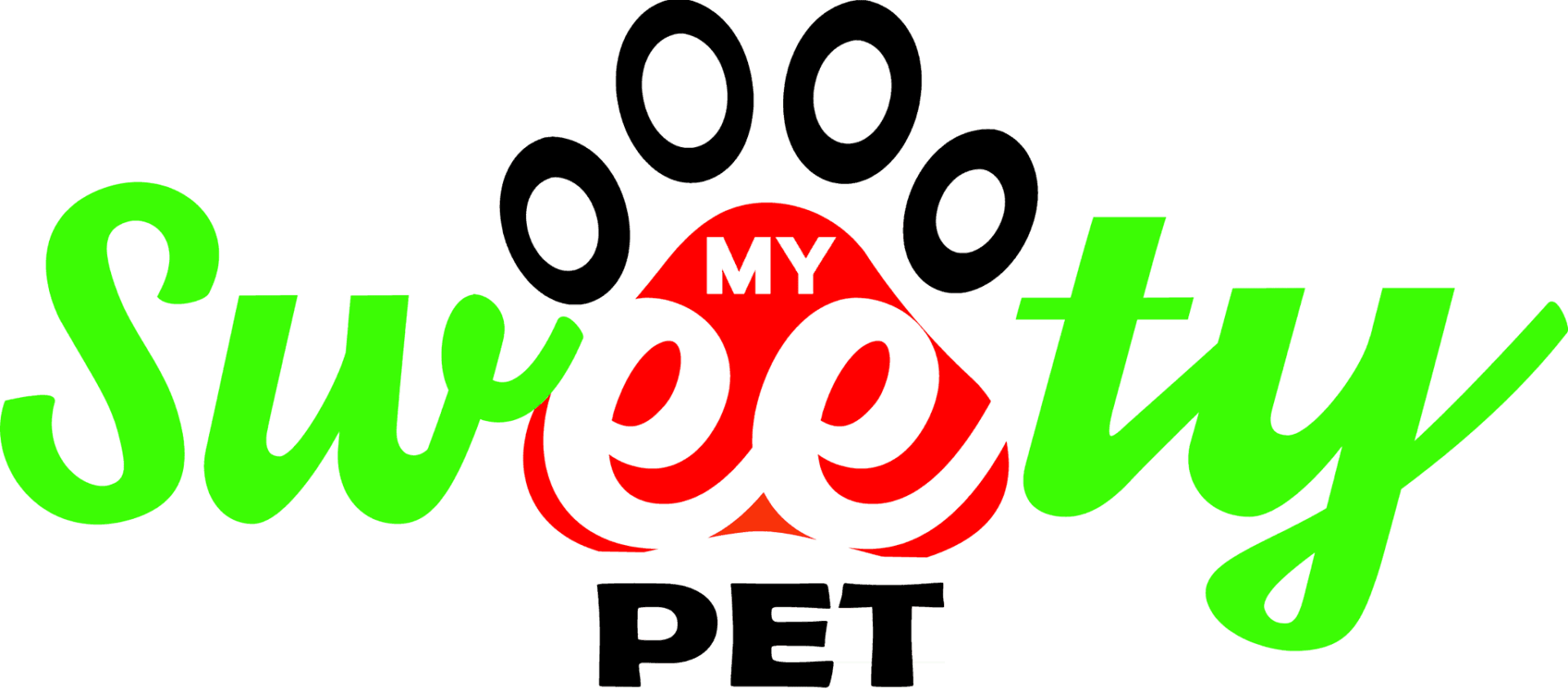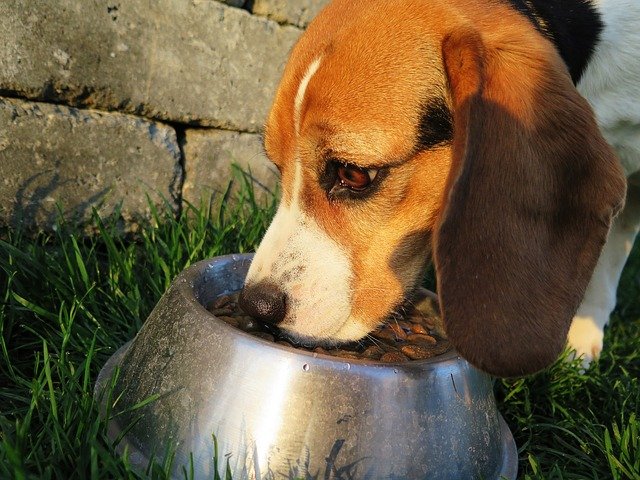For many dog owners, it can be a familiar sight to find your dog gobbling down food without taking so much as a pause to breathe. Unfortunately, eating too fast can cause digestive distress, resulting in belching and flatulance. This can make for a very unpleasant experience for you being around them after a meal!
If your dog is eating because he’s hungry and hasn’t eaten for a while, then it’s natural he will want to devor anything that’s put in front of him. Try not to overfeed him in this scenario, especially in the morning. Some foods are simply easier for your dog to swallow down whole, while others, like raw bones, will keep them occupied for hours on end.
In other instances, your dog may just be eating out of gluttony. Some breeds, like labradors, are notorious for this. It’s important to note, just because a dog will eat when you put something in front of him, doesn’t mean he should.
Over-eating can cause a host of health problems, just like it does in humans.
While some dogs may seem like a lost cause when it comes to guzzling down food, there are a few things you can do to help pace their eating as best you can.
Consider a few different ways to stop your dog from guzzling down food
Use a slow feeder dog plate.
If your dog eats a lot of food, you may find a dog lick mat to be a helpful tool to pace their eating. These textured mats allow you to press the wet food into the surface, making it harder for your dog to guzzle food by the mouthful. Unlike traditional dog bowls, they can scoff down food and the licking will promote slower eating and better digestion.
Train your dog.
Well trained dogs tend to be more responsive to their owner’s orders. Teaching simple skills like waiting for you to queue them to eat, may help to encourage more paced eating and reassure to your dog that they don’t need to panic or guzzle their food. You can teach them to respond to an interruption to their meal in an attempt to help them pace their eating.
Make it harder for him to find his food.
If your dog has a tendency to raid your pantry, bin, compost pile or where you store his food, then make it a habit to make it hard for him to access. Put his food away in a cupboard where it isn’t visible or in a cabinet so that it’s not within reach. Don’t encourage habits, like eating under the table, if you don’t want them to do so.
Keep your dog busy.
If your dog is eating because he’s bored or just wants to play, then there are a number of ways to keep him busy. For example, put a toy or ball in another room and let him go in and get it. Alternatively, give him something to chew on – a stick of wood, a raw bone, or even a feather.
Make sure your dog has access to water.
Your dog needs regular access to water. Make sure that his water bowl is always placed where he can easily reach it. If your dog eats a purely raw diet, then you may notice he might not need to drink as much water, This is perfectly normal as they get hydrated through raw meat as well. Whereas a diet of kibble is dry and will require more water throughout the day.
Ensure that the food you are giving your dog is of good quality.
If you are feeding your dog treats that are high in fat, sugar, and salt, then they will be likely to make him overeat. If you want to cut down on the amount of food he eats, you will need to reduce the number of treats you give him. Finally, don’t feed your dog treats that are just for show. They may look great, but they will also be high in calories and encourage over-eating.
Make sure that you know what your dog is eating.
If your dog is eating unhealthy food, he will have a lot of problems. The most obvious of these is that he will be likely to get ill. If you don’t want him to get sick, you will need to take some steps to stop him from eating the wrong food. You will also need to ensure that he is getting the right amount of food in the right amount of time.
If you are worried about your dog getting sick, you should talk to your vet about how you can best feed your dog. You may also want to try and cut down on the amount of food that he eats.

